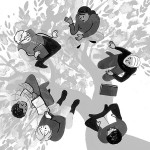2017: Returning to Haifa
The 2017 campaign began on February 21 with the third annual One Book, Many Communities Lecture in London, England. Featured speakers included Professor Gilbert Achcar of the University of London’s Centre for Palestine Studies and Khaled Ziada, head of the Palestine Film Foundation. Listen to audio from the event here.
In spring 2017, groups throughout North America, the Middle East and Europe hosted discussion events in libraries, coffee shops, theaters and homes about Ghassan Kanafani’s novella “Returning to Haifa.” Most of the events took place in April, to coincide with Palestine Reading Week, with some groups meeting in May and June. What follows are photos and descriptions of only some of the groups that met.
The first reading group met in Beitunia, Ramallah, Palestine on April 4. Around 30 attended the event. Discussion ranged from Khaldun/Dov’s attitude toward his birth parents to the idea of homeland and the Nakba. Students reported feelings of anger, empathy and sorrow after reading the story.
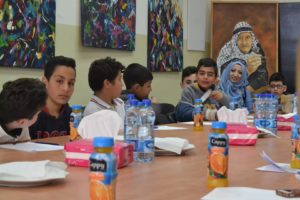
Students in Beitunia, Ramallah, Palestine.
An event in Rome, Italy the next day attracted 30-35 attendees. Moving reading by actress Dalal Suleiman. Monica Maurer introduced a film created after Ghassan Kanafani’s death by Palestinian director Hawal Kassem entitled Ghassan… The Word/The Gun. Professor Wasim Dahmash spoke about Kanafani’s personality and body of work.
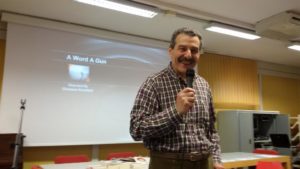
Professor Wasim Dahmash in Rome, Italy.
Montreal, Quebec hosted two events, one for English speakers and one for French speakers. The Anglophone group at McGill University discussed the historical context of the novella, the portrayal of Khaldun/Dov’s two mothers, and the intergenerational differences in how to resist occupation.

Participants at McGill University’s Islamic Studies Library in Montreal.
A group of 6 in Madison, WI watched a movie based on the novella via YouTube, and a trailer for a more recently produced Israeli theater production. They also discussed the historical background and personal background of the author.
A soccer group in Brooklyn, NY had participants with connections to Colombia, Sudan, Scotland, Egypt, and Israel. Since there were Arabic speakers in attendance, the group discussed language and translation, in addition to the themes in the story.
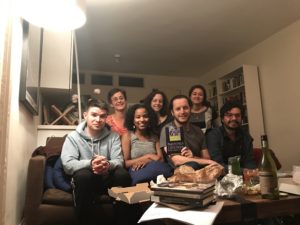
Soccer club Left Wing Futbollista read the novella together in Brooklyn, New York.
Librarians and Archivists with Palestine is grateful to all those who hosted One Book events the world over. See you in 2018!
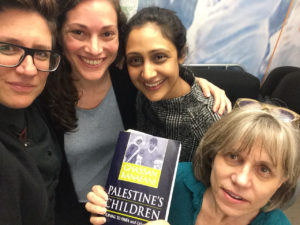 Brooklyn, New York |
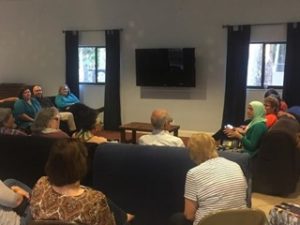 Coral Springs, Florida |
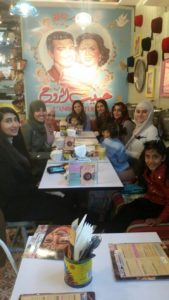 Leeds, United Kingdom |
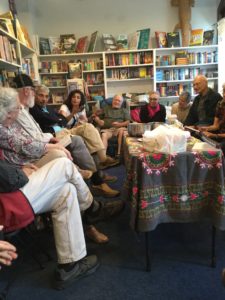 Montclair, New Jersey |
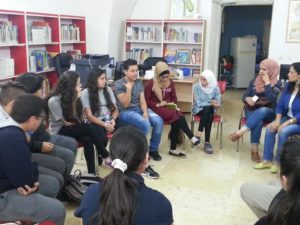 Ramallah, Palestine |
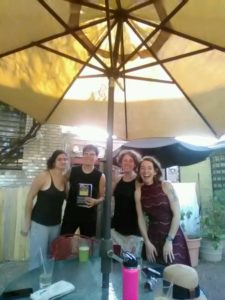 Tucson, Arizona |
* * *
April (and beyond) 2017! One Book, Many Communities: “Returning to Haifa” by Ghassan Kanafani
-
- February 21, 2017. Third Annual One Book, Many Communities Lecture. London, U.K. Listen to audio from this event here.
-
- April 4, 2017, 1 pm. Beitunia Public Library, Beitunia, Ramallah, Palestine.
-
- April 5, 2017, 6pm. Rome Biblioteca Marconi, Via Gerolamo Cardano, 135, 00146. Rome, Italy.
-
- April 5, 2017, 7 pm EST. One Book, Many Communities Twitter chat. Find out how to participate here.
-
- April 6, 2017, 5:30 pm. McGill University’s Islamic Studies Library, Morrice Hall, 3485 McTavish Street, Montreal, QC, Canada. (Discussion in English. See below for Francophone discussion group.)
-
- April 13, 2017, 5 pm. University of Montreal’s Humanities and Social Sciences Library, Pavillon Samuel Bronfman, 3000, rue Jean-Brillant, room 3091, Montreal, QC, Canada. (Discussion in French. See above for Anglophone discussion group.)
-
- April 15, 2017, 1 pm. Watan Studio, 7710 W. 159th Street. Orland Park, IL, U.S.A.
-
- April 15, 2017, 2 pm. The Black Unicorn Project, Reading Room. 732 E Warrington Avenue, Pittsburgh, PA, U.S.A.
-
- April 17, 2017, 7 pm. Jadal for Knowledge and Culture, Amman, Jordan.
-
- April 19, 2017, 6:30 pm. Sala Talamucci, Via Dante, Sesto San Giovanni, Milan, Italy.
-
- April 20, 2017. Private group. Brooklyn, NY, U.S.A.
-
- April 23, 2017, 4 pm. Petaluma Arts Center, 230 Lakeville Street, Petaluma, CA, U.S.A.
-
- April 27, 2017, 6 pm. Revolutionary Grounds, 606 N 4th Avenue, Tucson, AZ, U.S.A.
-
- April 27, 2017, 5 pm. Antioch University Seattle Library, 2400 Third Avenue, Suite 200, Seattle, WA, U.S.A.
-
- April 27, 2017, 7 pm. Alicia Ashman Library, 733 N High Point Road, Madison, WI, U.S.A.
-
- April 28, 2017, 4:30 pm. Biblioteca Valvassori Peroni, Via Valvassori Peroni 56, Milano 20133, Milan, Italy.
-
- April 29, 2017, 6 pm. Cinema Teatro “Ai Bersaglieri” Via Roma 221, 30038 Spinea. Venice, Italy.
-
- April 29, 2017, 6:30 pm. Libreria Zaum, Via Cardassi 85/87, 70121. Bari, Italy.
-
- April 30, 2017, 5 pm. Watchung Booksellers, 54 Fairfield Street, Montclair, NJ, U.S.A.
-
- May 2, 2017, 3:00 pm. The Ottoman Court, Ramallah, Palestine.
-
- May 5, 2017, 6 pm. Church of St. Stephen in-the-Fields, 365 College Street, Toronto, ON, Canada.
-
- May 6, 2017, 11 am. Biblioteca Amilcar Cabral, via San Mamolo 24, 40136 Bologna, Italy.
-
- May 8, 2017, 6:30 pm. Cloverdale Regional Library, 401 N Cloverdale Blvd, Cloverdale, CA, U.S.A.
-
- May 12, 2017. Private event hosted by Left Wing Futbollista. Brooklyn, NY, U.S.A.
- June 4, 2017. Private event. Portland, OR, U.S.A.
***
Promotional materials for “Returning to Haifa”
- One Book 2017 bookmark (non-customizable)
- One Book 2017 bookmark (customizable)
- One Book 2017 flyer (customizable)
***
2017 TOOLKIT
PLAN YOUR EVENT
Choose a venue. Remember that library, community center, bookstore and other public venue schedules can fill up fast, so schedule your event as soon as possible.
Pick a date in April 2017. Make sure you get it on the schedule of your venue. If April proves impossible and you need to schedule your group at a different time, that’s okay, too.
Choose a facilitator/leader for the discussion. Find someone who’s excited to read and help generate conversation around the book.
Plan the format. Depending on the size and nature of your event, this could be an informal conversation, a structured discussion around particular questions, a talk featuring a guest speaker, or even a group that meets on an online platform.
Tell LAP about your event. We will list and link to it on our own site and Facebook page.
Coordinate with your venue or host to ensure you understand logistics. What is the maximum number of people? Will there be refreshments? What is the seating (all participants should be able to see and hear one another)?
Get more ideas here:
- ALA: Book Discussion Groups + One Book, One Community resource page
- Beyond the Book (UK/Canadian site)
- Library of Congress: Center for the Book and LOC searchable directory of One Book programs
- One Book, One College: Common Reading Programs (Barbara Fister)
- Tips from the Seattle Public Library
PROMOTE YOUR EVENT
If your event is open to the public, publicize it:
- Use our resources for flyers and bookmarks, or make your own using the “One Book, Many Communities” logo. The templates include space for you to enter the date and location information for your event.
- Create a Facebook group and/or event page. Email us the link so we can post a link on our main Facebook page.
- Tweet and Instagram using the hashtag #lap1book. If you tag us (@Librarians2Pal), we will retweet!
Let participants know where they can obtain the book:
- Order from an independent bookseller, if at all possible.
- Bookstores serving as hosts may offer discounts as part of the deal, so please ask them!
- If your local public library doesn’t own any copies, your local academic library might. Some academic libraries allow members of the nearby community to check out books, so make sure you ask!
- Many libraries, both public and academic, offer interlibrary loan (ILL) services if a book is not part of their collection.
HOLD YOUR EVENT
Document it. Take photos (with participants’ permission). Record any presentations. Live tweet the discussion! Remember to use the hashtag #lap1book.
Share tips for leading a great book discussion with your facilitator:
(several of these are adapted from the ALA Book Discussion Groups page)
- If possible, talk with co-participants in advance about your wishes and goals for the group. What would you and they like to get out of the experience? This could help you structure your meetings and build in time for refreshments, media viewing, etc.
- If you have time (and perhaps an online platform), consider collectively brainstorming questions about the book before the first meeting. This will give all participants a chance to help shape the discussion.
- Talk about your experiences of reading the book. Explore how the book made you feel, and the emotions, themes, and questions it brought up.
- Talk about any preconceptions you had before reading the book that changed after you read it. How did this book transform your attitudes and perceptions? What did you learn from it that you didn’t know before?
- Pick a passage that strikes you as interesting, moving, and/or thought-provoking. Read it aloud to the group. Discuss.
- Use secondary sources (including dictionaries, history texts, film, photography, see our resource guide (PDF) for ideas) to place the novel in new contexts. For instance, look up a historical event to learn more about it.
- If you could ask the author a question about the book, what would it be?
Ask one or more of these questions that LAP designed specifically about “Returning to Haifa:”
- “I know this Haifa. But it refuses to acknowledge me.” (page 150) How do feelings of displacement play a role in this story? Where is this quote in the arc of the narrative and how does it reflect the characters’ experience overall?
- Kanafani wrote “I became politically committed because I am a novelist, not the opposite.” (page 17 of introduction) How can fiction have an impact politically? Does it express political realities in a way that journalism can’t?
- As Saif S. and Safiyya enter Haifa after twenty years, Safiyya reflects by saying “I never imagined that I would see Haifa again,” to which Saif responds, “You are not seeing it. They are showing it to you.” What are some of the ways, in addition to physical presence, in which ownership over a piece of land (Haifa) is constructed from an Arab vs. Jewish perspective in the novella?
- What role does shame play in Saif and Safiyya’s story?
- Do Saif and Safiyya complement each other in the novella or echo similar sentiments and perspectives? What role does their gender play in their dynamics, if any?
- Dov rejects his birth parents by saying a “man is a cause.” What does he mean and what is his “cause?” To what extent has the history of the Israeli occupation shaped Dov/Khaldun’s life?
- [For discussions among people already involved in Palestine solidarity work.] How can this book be used to spread awareness of the issues that Palestinians face? How is Kanafani’s approach effective? What are its limitations?
Distribute any additional resources to discussion participants. You can use our resource guide (PDF) for “Returning to Haifa” for additional information and suggested further readings.
Encourage participants to keep the conversation going. Suggest that people donate their no-longer-needed copies of “Returning to Haifa” to a local public, university, or school library or other community center (but check first to make sure they take book donations!).
